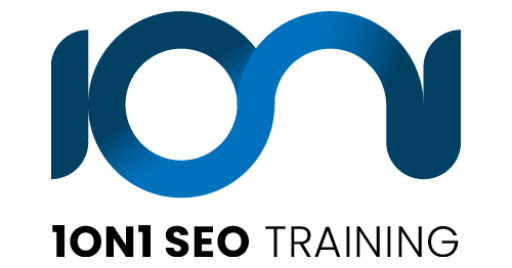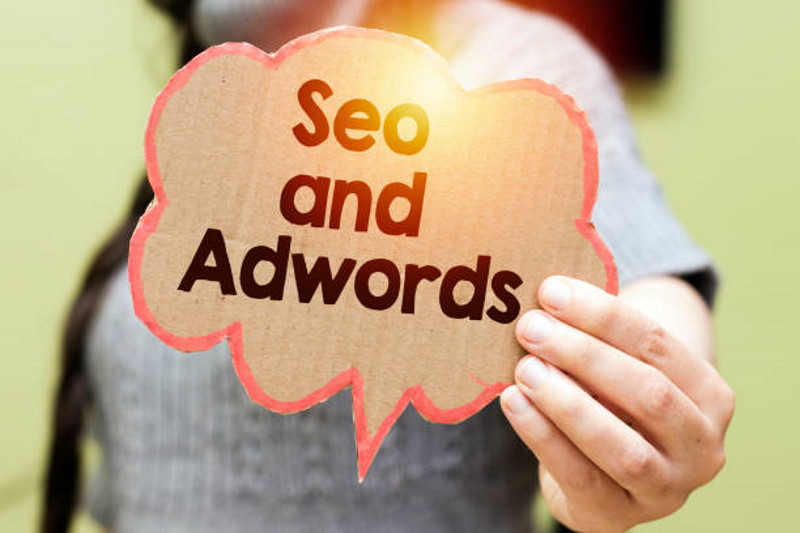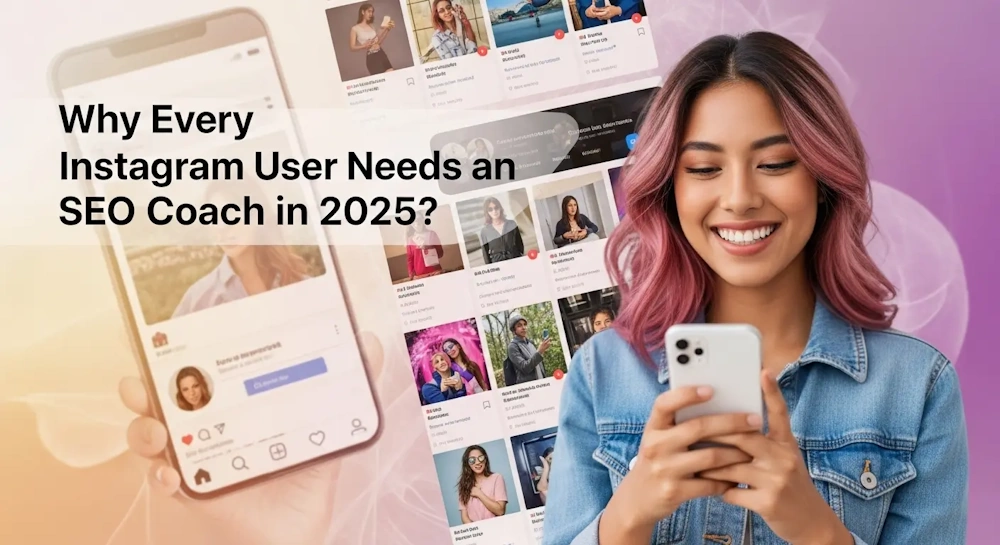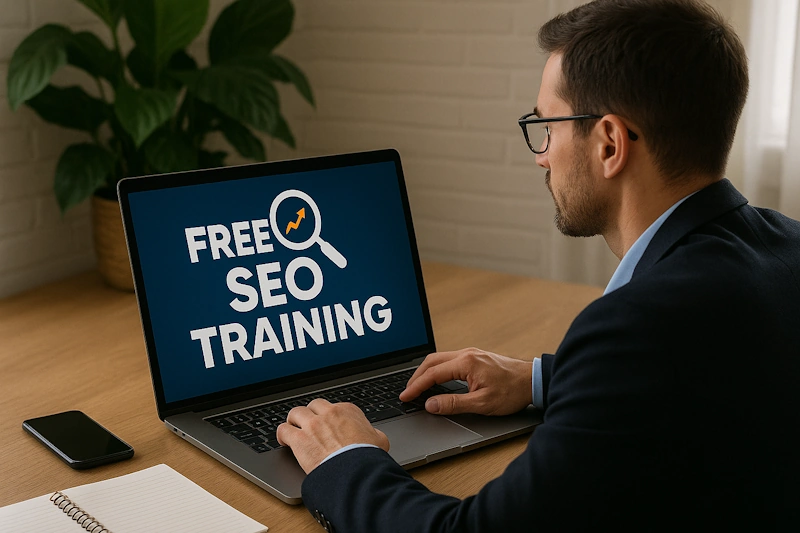As a business owner, you've probably thought of focusing your efforts on SEO (inbound marketing) instead of continuing with PPC or Google Ads.
You probably read the literature, and you've become convinced that Google Ads can't give you something that businesses with SEO have: longevity and recurring potential for growth without having to shell out thousands of dollars monthly for ads.
When your ad spending budget is exhausted, the ads stop. The sales and leads will also stop if your website is not designed or optimized to generate organic or natural traffic from search engines.
Why IS SEO Superior to Advertising?
Should you invest in pay-per-click ads or search engine optimization ads?
In a nutshell: SEO is an essential tool for effective digital marketing since it provides your business with the finest opportunities of being found by the right customers, even if the SEO takes a while to take effect. On the other hand, pay-per-click (PPC) advertising enables you to reach customers faster and immediately adjust your campaign. Of course, PPC ads are only a good option if you're looking for a quick boost in site visitors. Nevertheless, search engine optimization is the way to improve your company's online visibility over time. And there are other benefits, too.
SEO is More Economically Viable
Economic viability and long-term investment return sound like a dream for many entrepreneurs, but they're just realities for SEO. In the long run, SEO will save you money compared to pay-per-click advertising.
Since it takes time to achieve better domain authority, build a great backlink profile and create content, a sensible SEO strategy takes a while to gain traction before it begins to pay off. However, once that initial boost has been made, you can expect significant financial gains.
What is waiting a bit if you're going to be set for years?
And once you begin succeeding, it will only go up if you continue doing SEO. SEO is a lifetime preoccupation, and it also works best if you continue doing it not because you need to continue hiring SEO professionals but because search technology and search engines continue to change over the years. 2015 Google is nothing like 2022 Google. Who knows what 2025 Google will look like? Businesses naturally need to adapt to search, and search is here to stay—probably for good.
SEO Builds Reputation and Organic Appeal to Customers
You are no stranger to Google ads. In your opinion, what do they lack? If you're like anyone else on the internet, you probably ignore the sponsored results and go straight to the natural ones when searching. Because people place more faith in unpaid or "organic" search results, SEO is a fantastic strategy for establishing your brand as an industry leader.
You (Eventually) Dominate Your Market with SEO
In pay-per-click advertising, you can get your ad displayed for any term if you have enough cash to throw around. However, money cannot buy success (at least, not as quickly) in SEO. After you've proven your expertise in a particular field, you'll have little trouble remaining at the top of your field. However, the journey there may be challenging.
Nothing is Wasted
SEO's link-building requirements, quality content, and user-friendliness give it a wide range of collateral benefits and the potential to bolster a wide range of marketing approaches. In short, nothing from SEO is wasted.
You have everything to gain if you truly want to scale your business in the digital space. And who could still afford not to be online now that consumers look for the most miniature items and solutions online?
SEO Supports Content Marketing (100%)
SEO without content marketing is like a dead body. Floating downstream. Because every website needs words, articles, substance, keywords, etc., SEO strategies are centered on content marketing. Both need to work together in tandem for the best results.
The backbone of SERPs is finding and using keywords that will help your content rise in search engine rankings.
Correctly utilizing keywords and taking a systematic approach are both crucial. Over optimizing a page by including too many keywords is not a good idea. Search engine optimization and content creation complement one another.
An efficient keyword strategy is essential for search engine marketing (SEM). When working with a new client, we conduct extensive research to identify the most relevant websites and keywords for that sector. Using Google's Keyword Planner, a keyword analysis tool, we systematically examine the popularity, search volume, and competition of the most sought-after search terms (high, medium, or low).
We utilize Google's vast AdWords database, covering many different sectors, from healthcare to IT to the entertainment industry.
To achieve better ranking and higher CTR, it is necessary to incorporate focus keywords throughout the content. However, once again, you should stick to a plan and not force them into the text.
Keyword repetition hurts search engine optimization. Instead, use common sense by putting your primary keywords in your content's heading and body.
Consistency is vital in search engine optimization and content promotion. New, original, and creative content is quickly indexed and placed higher in search results than outdated, repetitive content. In addition, customers can be attracted to your business if you provide content that does more than answer their questions.
Therefore, publishing content that answers basic questions and provides conversation ideas is always a good idea. Keeping the conversation going is essential.
Using relevant keywords and focusing on your audience can help you craft content with sway. This is the most critical signal Google uses to evaluate a page's importance and assign it a ranking. The secret to widely read content is to generate original ideas and strategically embed the most relevant keywords.
SEO Supports a Healthy Website and Happy Customers
Regarding search engine optimization, it's not all about blogs, articles, keywords, and linkbacks; you also need to worry about optimizing robots.txt, improving metadata, and making good use of tags.
Technical optimization makes a website more user- and search engine-friendly by fixing any incorrect code or links (like 404s). If this isn't the case, the search engine won't give the source a high ranking. The search engine can better find the relevant subpages and categorize your site's various sections if the URLs are optimized and the slug (everything after the.com) is brief. This is a must-have for any effective SEO strategy. The UX benefits from the presence of the technical SEO elements, which are also there to promote the content.
An effective sitemap facilitates user navigation, and a well-tuned robots.txt file facilitates content discovery and accessibility. Good indexing and reliable search results result from using the correct tag. By strategically organizing the content in a way that is beneficial for readers and easy for the search engine to understand, tags like header tags and title tags greatly benefit the user.
If the title tag accurately describes the page's content, the user will have a much better time there. In addition, using header tags (H1-H6) is crucial for effectively differentiating between headings and subheadings within the content.




